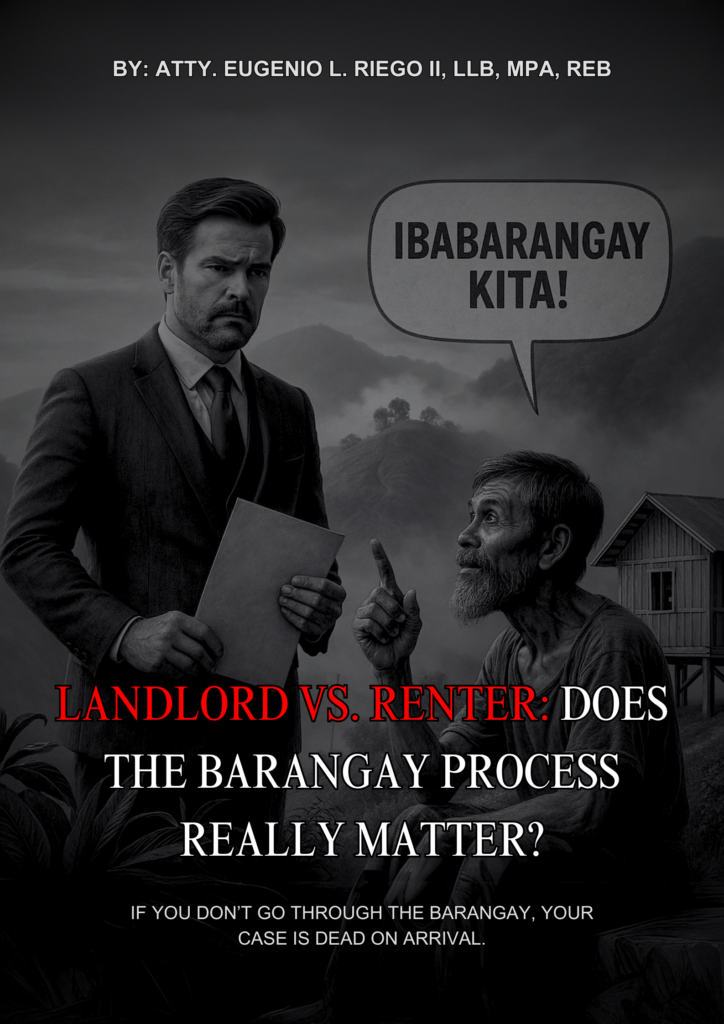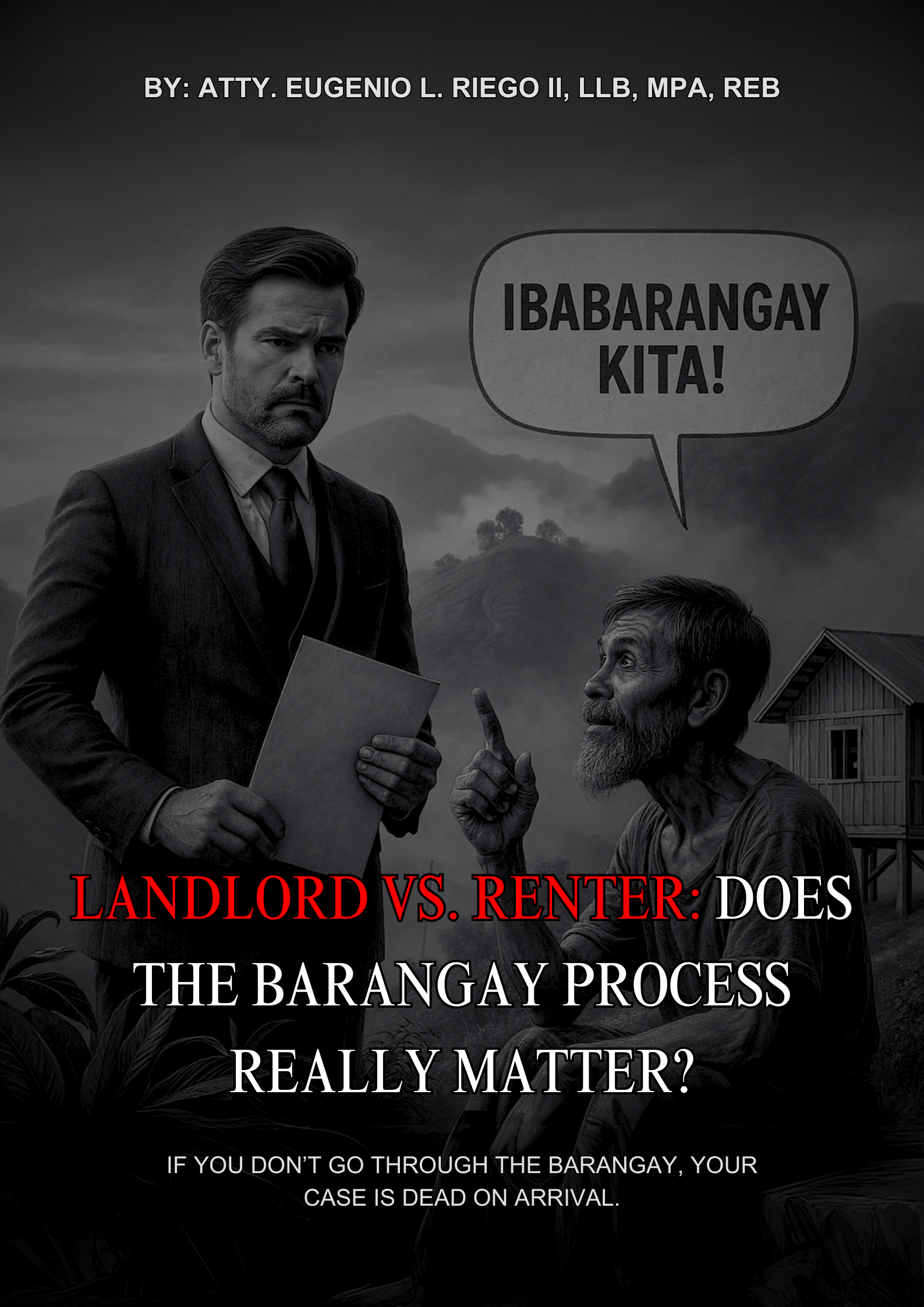Landlord vs. Renter: Does the Barangay Process Really Matter?
By Atty. Eugenio L. Riego II, LLB, MPA, REB
A Tale of Pedro, the Renter Who Forgot About Rent
Meet Pedro, a man of many talents—but financial management is not one of them. He works hard, but somehow, his money disappears faster than a magician’s rabbit. Between online shopping, impulse vacations, and a failed investment in an “organic ice cube” business, Pedro finds himself broke.
Then comes Juan, his landlord. Juan is a simple man with simple expectations: if you live in his apartment, you pay rent. Unfortunately, Pedro, having mastered the art of selective hearing, ignores Juan’s polite reminders.
Months pass, and Juan has had enough. He corners Pedro one day and demands payment. Pedro, ever the optimist (or escapist), shrugs.
Juan, now fuming, delivers his ultimate threat:
“IBABARANGAY KITA!”
Pedro, unfazed, smirks. “Bahala ka.”
Now, Pedro might think he’s won this round. After all, the barangay isn’t a police station, nor is it a court. But is he right? Does the barangay process still matter when it comes to unpaid rent and land disputes?
Legal Answer
Yes, the barangay process still matters—a lot!
Under the Katarungang Pambarangay Law (Presidential Decree No. 1508, now incorporated in the Local Government Code of 1991, Sections 399-422), certain disputes must first be brought before the barangay before they can be elevated to the courts. This is called conciliation and is mandatory for disputes between individuals residing in the same city or municipality.
So if Juan wants to bring Pedro to court for non-payment, he can’t skip the barangay process. If he does, the court will dismiss his case faster than Pedro spends his paycheck.
The barangay might not have the authority to throw Pedro in jail, but it does have the power to issue a Certificate to File Action. Without this certificate, Juan’s case cannot proceed in court.
So yes—ignoring the barangay process is a legal misstep.
Case Study: Aquino v. Aure
To drive home the importance of barangay conciliation, let’s look at a Supreme Court case where someone tried to outsmart the system—and failed.
In Aquino v. Aure, two neighbors had a property dispute. Instead of following the law and going through barangay conciliation, one party decided to take matters into their own hands and went straight to court.
The other party, probably smirking like Pedro, objected and said, “Teka lang, hindi pa tayo dumaan sa barangay!” The trial court agreed and dismissed the case for skipping the barangay process.
The complainant, determined to fight, argued that the barangay process wasn’t really necessary.
Spoiler alert: The Supreme Court didn’t agree.
The Ruling:
The Supreme Court ruled that barangay conciliation is a jurisdictional requirement for cases falling within its scope.
Meaning? If you don’t go through the barangay, your case is dead on arrival.
The Court emphasized that barangay conciliation reduces court congestion and allows parties to settle disputes in a cost-effective, informal, and efficient manner. It also pointed out that barangay processes often lead to amicable settlements—saving people from unnecessary legal headaches.
So in short: if you ignore the barangay, you’ll be stuck like Pedro—nowhere to run, nowhere to hide.
Quick Advice
The lesson here? The barangay is not just a community drama center—it actually has legal weight!
✔ If you’re a landlord like Juan – Don’t let tenants like Pedro get away with unpaid rent. Barangay conciliation is free, faster than the courts, and often leads to a resolution. If Pedro still refuses to pay, at least you’ll get your Certificate to File Action—your golden ticket to court.
✔ If you’re a tenant like Pedro – Don’t underestimate the barangay. They may not wear black robes or have a gavel, but they can still make your life difficult. If your landlord says, “Ibabarangay kita,” take it seriously—because chances are, the law is on their side.
✔ If you think hiring a lawyer is expensive – Try ignoring the barangay process and losing in court. That will cost you way more.
Final Thoughts
Thank you, and remember—pay your rent on time!
Visit to know about – Why Real Estate Ownership is Evolving in the Philippines


